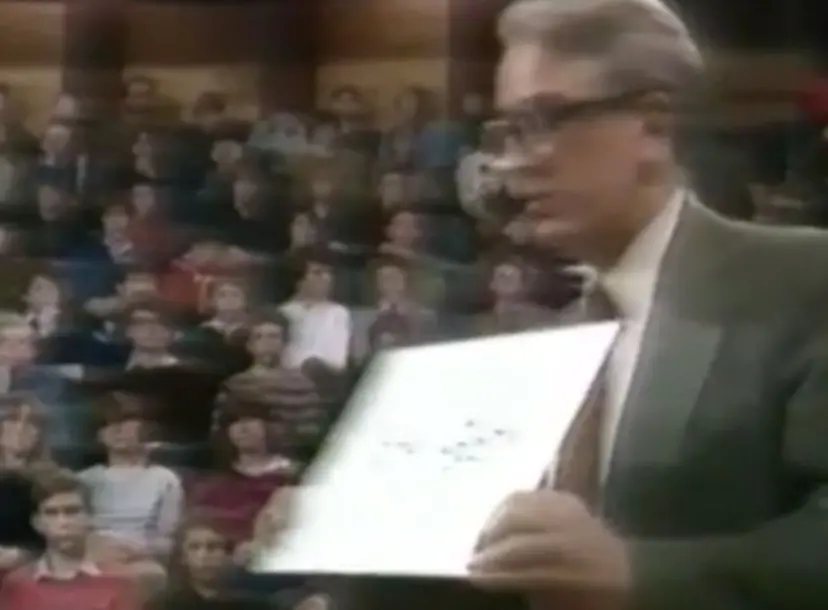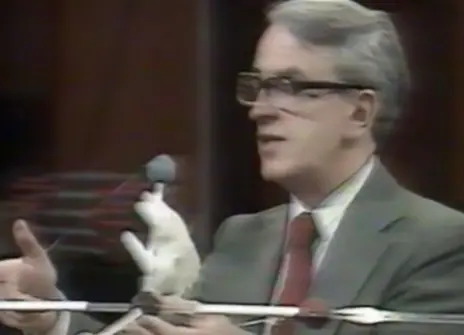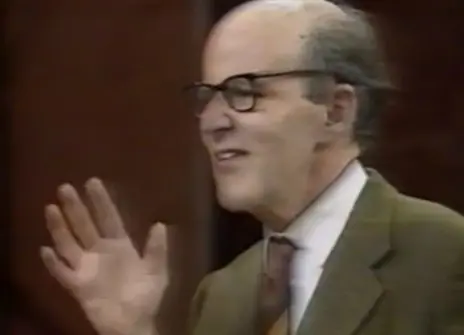Lecture 6 – Molecules at work
From the lecture programme notes:
Many types of protein molecules play essential parts in the lives of complex organisms. In addition to the enzymes and transport molecules like haemoglobin, they include hormones, such as insulin and glucagon; the cellular receptors that respond to hormones and other chemical messengers; antibodies that recognize and help to eliminate foreign molecules of all kinds; the complex systems of proteins that are involved in blood clotting and similar processes; and many others. As our understanding of their various activities grows so does the possibility of using them both in medical practice and in industry. We shall see examples of this and how the natural apparatus of protein synthesis can be used to produce the proteins we need.
About the 1980 CHRISTMAS LECTURES
Which came first, the chicken or the egg? This is one of the best known of all riddles without an answer but it is now giving place to a new riddle about the molecules from which chickens and eggs – and human beings – are made. These molecules are proteins and nucleic acids.
This series of six lectures, five presented by David Phillips and one with Max Perutz, showcases the complexity and importance of the proteins that make up so much of life. The lectures weave through the DNA helix, unravelling the mechanism that links DNA and protein production, and asking ‘which came first, the DNA or the protein?’





